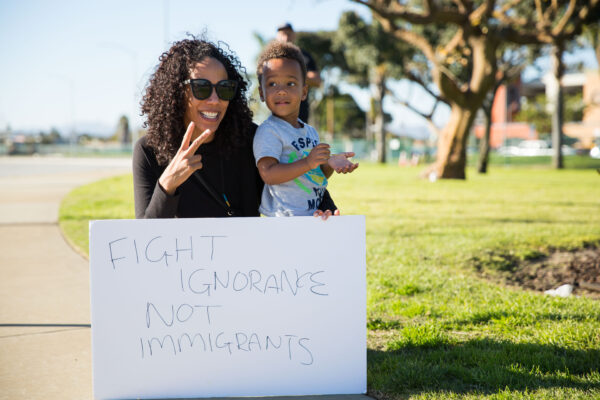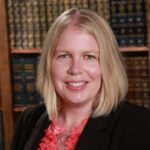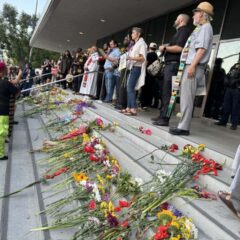We are seeing a rise of government policy predicated on religious illiteracy and religious bigotry. Executive orders are being formed to target Muslims, and border procedures assessing acceptable and unacceptable religious belief are being weighed to determine admission to this country.
I teach religious literacy and competency training courses all the time, mostly to government employees in emergency management, public safety and public health. Recently, I have included a basic religious literacy quiz with 1-2 questions on major religions. They are general knowledge religious questions: What is David famous for doing? Which of the following do Hindus worship? What religions is Abraham considered the founder of? There’s a question on Islam: Which one of these is not a pillar of Islam?
I also have been throwing in one question that’s harder than one might expect: Name all 12 of Jesus’s disciples. Most of my classes are made up of mid-career professionals from all different racial and ethnic backgrounds. Most self-identify as nominal to committed Christians. And yet, of their own religion, they cannot, when put on the spot, remember a list of 12 very important names.
I pivot and ask, “Was the quiz easy or hard?”
They always say it was hard and that it surprises them how basic and yet how difficult it was.
In the beginning of class, many tell me they are interested in learning more about Islam and Muslims, often with a tinge of apprehension or sometimes even outright hostility. As we debrief the quiz, I like to remind them that some had some strong opinions about Islam and Muslims, and yet, when I asked them one multiple-choice question about Islam, most got it wrong.
As a learning and leadership principle, I try to impress upon the participants that before they hold fast to their opinions, they ought to examine where they came from. They need to remember how little of their own religion, Christianity, they have a competent grasp of. If as Christians, they still have a lot to learn about their own faith, then perhaps they should be a bit more cautious about opinions they have formed about faiths other than their own, especially if they have never read a book about that religion, had a conversation with anyone who belongs to that religion, or visited one of their congregations.
Creating a religious test for entry into this country is unconstitutional and immoral. But it would also mean that most people in the U.S. couldn’t pass it.Creating a religious test for entry into this country is unconstitutional and immoral. But it would also mean that most people in the U.S. couldn’t pass it, much like how most couldn’t also pass the citizenship test we require of immigrants. A great irony of American life is that we require more of those voluntarily seeking our refuge, than those who were by accident of history and parentage simply born here.
As we move through what is becoming a dark time for religious pluralism, we should be reminded that the point of education is to both humble and empower you. Sir John Templeton says, “As you grow in knowledge you should grow in humility,” because you see how much more there is to know and realize how little of it you’ve actually been exposed to.
CRCC has developed tools for religious literacy and competency with the National Disaster Interfaiths Network, the USC CREATE program and the Department of Homeland Security’s Office of Faith-based and Neighborhood Partnerships. Click here to see the online course for FEMA, IS-505: Religious Literacy and Competency in Disasters.
Photo: Protesters demonstrated at LAX against President Trump’s immigration order on Sunday, January 29. By cindychu/Flickr
Brie Loskota is the former executive director (2016-2021) of the USC Center for Religion and Civil Culture.





